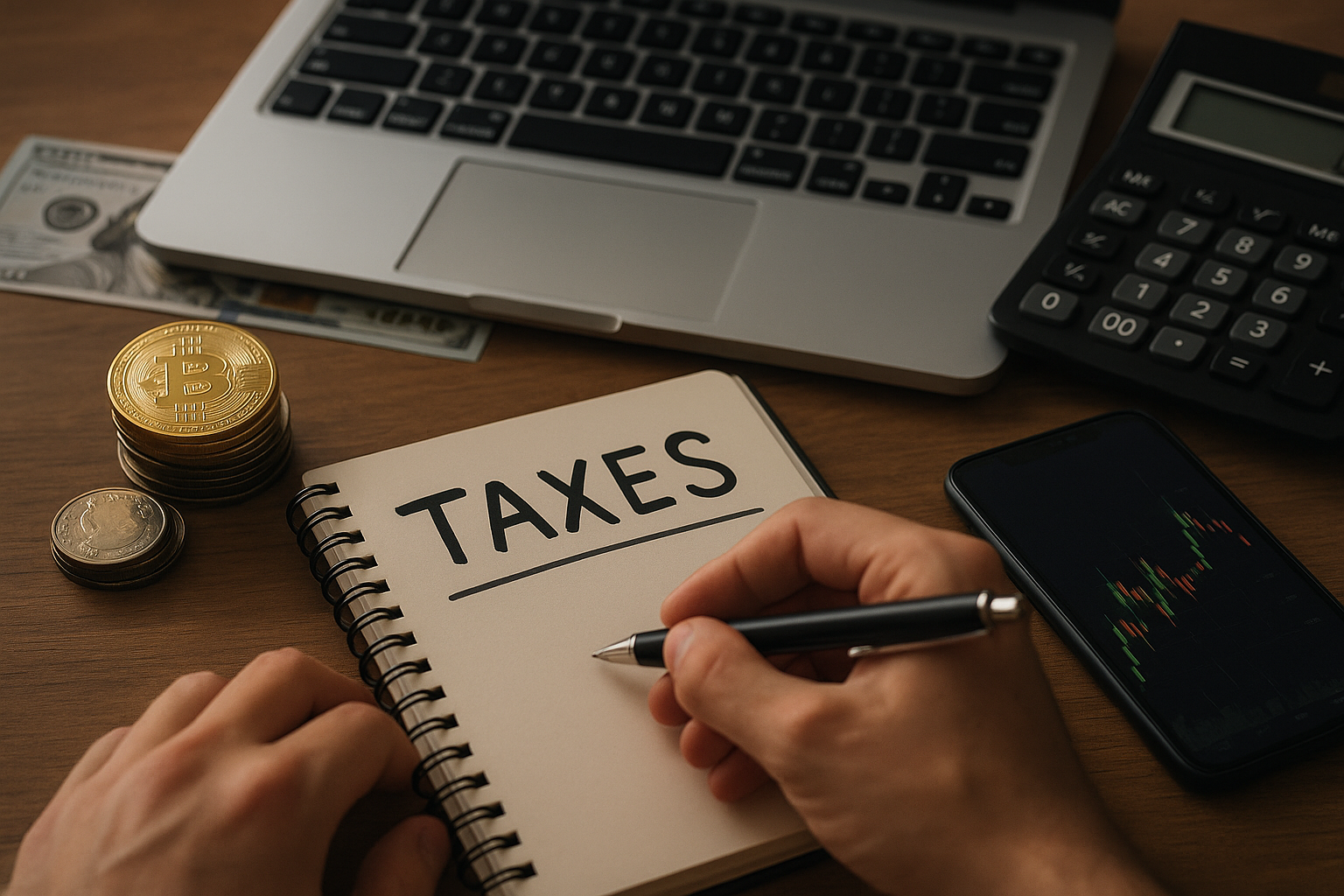
Crypto Taxes: Do You Have to Pay and How Does It Actually Work?
This article explains general principles and is for information only. It does not constitute legal or tax advice. Personal outcomes depend on residence, income type, cross-border links, documents, and timing.
Do you have to pay taxes on cryptocurrency? If you’ve ever bought, sold, traded, or even received crypto as a gift — the answer is likely yes. Despite the decentralized nature of crypto, tax authorities in most countries treat it as a taxable asset. That means governments want their share of any profits. In this guide, we explain when tax obligations arise, how tax agencies find out about your crypto, and what you can do to stay compliant.
Bought Bitcoin? Or Ethereum? Or Some Meme Coin With a Spell-Like Name? Now You're Wondering: Do I Owe Crypto Taxes?
The answer is — almost always yes. Even if you simply held and then sold later. And even if you sold at a loss — you don’t owe taxes on losses, but it’s still important to report them. In some countries, you can use those losses to offset future gains and reduce your tax burden in coming years.
Why Do You Have to Pay Taxes on Crypto?
Governments treat cryptocurrency as property (similar to gold or stocks), which means:
- Bought low, sold high? That’s a capital gain — and it’s taxable.
- Got paid in crypto for work or services? That’s taxable income.
- Gave crypto as a gift? In some countries, that’s taxable too.
Examples by country:
- USA: The IRS treats crypto as property. You owe capital gains tax on profits.
- Germany: If you sell crypto within one year of buying, profits are taxable.
- Canada: Crypto taxation has been around for years. Most crypto transactions (sales, swaps, payments) can trigger tax events if there’s a profit.
When Do You Have to Pay Taxes on Crypto?
Common taxable scenarios include:
- Bought 1 BTC for $10,000, sold for $30,000: You owe tax on the $20,000 gain.
- Received ETH for freelance work: That’s taxable income.
- Swapped ETH for SOL: In many countries, that’s a taxable trade.
- Paid for coffee with crypto: Even spending crypto can be a taxable event.
How Do Tax Authorities Know About Your Crypto?
Major crypto exchanges like Binance, Coinbase, and Kraken now report user data to tax authorities. Plus, blockchain transactions are public and traceable — all they need is your wallet address.
Starting in 2027, the OECD's Crypto-Asset Reporting Framework (CARF) will enforce global data-sharing on crypto accounts, similar to how bank data is shared under the CRS system.
While some countries still lack full tracking tools, the trend is clear: crypto tax enforcement is increasing. It’s better to stay ahead of the curve.
How to Report Crypto and Pay Taxes
Each country has different rules, but the general process looks like this:
- Calculate your crypto gains, losses, and income.
- Convert values to your local currency based on the transaction date.
- Fill out your tax return.
- Pay the tax due.
Example for U.S. taxpayers:
- Report trades and sales on Form 8949 and Schedule D.
- Report crypto income (freelancing, payments) on Schedule 1 or Schedule C.
It’s wise to keep detailed records or use crypto tax software like CoinTracking, Accointing, or Koinly. Koinly, in particular, offers excellent customer support and helps you track and prepare accurate tax reports.
💡 Note: In some countries like France, where crypto tax automation is still limited, Koinly may not generate a fully compliant report for direct filing. But it’s great for organizing and calculating your transactions so you can manually complete your tax forms — saving time and reducing errors.
What Happens If You Don’t Pay Crypto Taxes?
Crypto is no longer anonymous. Tax agencies can issue penalties, interest, or even criminal charges for noncompliance.
In the U.S., the IRS is actively sending letters to crypto holders reminding them of their tax obligations. In Germany, there have already been fines for failure to report.
Crypto Tax FAQs
Do I pay taxes if I just hold crypto?
No — holding isn’t a taxable event. But the moment you sell, trade, or spend it, taxes may apply.
What if I didn’t know I had to pay crypto taxes?
File voluntarily. Many tax offices offer reduced penalties for self-disclosure.
What if I lost money on crypto?
In some countries, you can use crypto losses to reduce future tax bills — this is known as loss carryforward.
Conclusion: Yes, You Need to Pay Crypto Taxes — But It’s Easier Than You Think
The key is not to ignore the issue or panic. Start by tracking all your crypto activity: buys, sells, trades, and income. Even small transactions can trigger tax obligations. Tools like Koinly can help automate the process, calculate profits and losses, and prepare reports. If you’re dealing with large amounts or international crypto activity, consulting a tax professional is a smart move.
Crypto offers freedom — but with freedom comes responsibility. Even when it comes to taxes 😉
Articles and calculators rely on general assumptions. Your outcome depends on your specific circumstances. Richys structures your situation to define a clear position. A verified EU expert can provide a written conclusion.
Start case analysis
